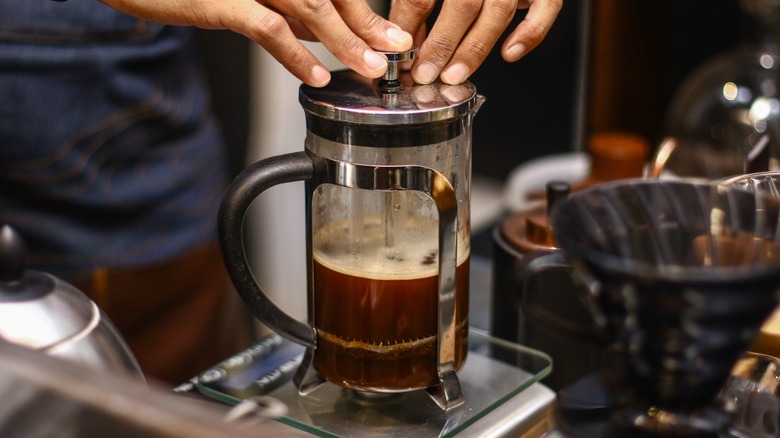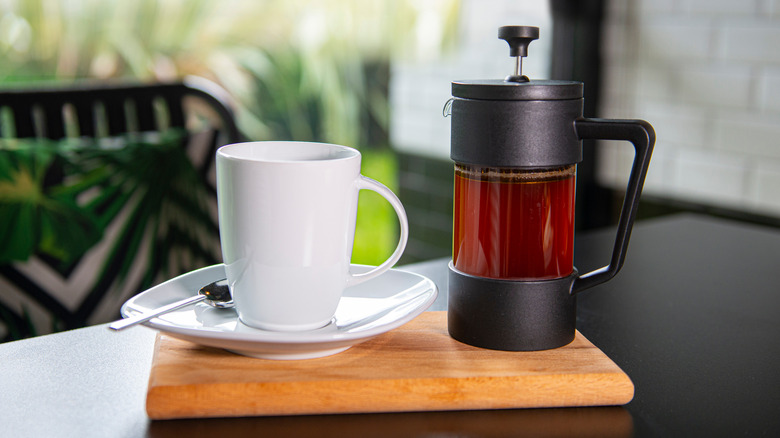The Unexpected Environmental Benefit Of Using A French Press
Coffee snobs can argue all day about the best single-origin coffee beans from obscure provinces in South America you've never heard of, or why they think certain types of coffee roasts should be either banned or mandated. But the conversation really gets heated when it comes to talking about the best brewing methods for coffee.
At this point, old fashioned drip coffee machines are practically passé. Keurigs make you think of eating lunch at your desk in a big corporate office. And pour-over coffee apparatuses make you feel like you're camping in your own home. But there's one classic coffee contraption that has stood the test of time: the French press.
French press stans love them for their simplicity and ease of use. Treated well, they can last a lifetime, require no electricity (though you need to heat water externally in some fashion), and are highly portable. French press brews also have a heartier and more robust flavor compared to other coffee machine brews, because the metal filter allows more natural oils from the coffee, which would be blocked by a paper filter, to infiltrate the final cup. But did you know that the French press is also the favorite of environmentalists?
French presses are no waste devices
It's well known by now that coffee machines that use individual plastic serving pods, like Keurig coffee makers, are bad for the environment. According to The Atlantic, the amount of K-cups that were dropped in landfills in 2014 could have wrapped around the planet an estimated 10.5 times.
But you should also be paying attention to coffee machines that use disposable paper filters, like drip coffee machines or pour-over devices. French press machines are one of the only ways to make coffee that doesn't require use of additional filters.
According to The Environmenter, the French press ranks better than any other coffee maker when it comes to producing the least waste, being the most compostable, and using the least energy (assuming you use an electric kettle for hot water for your French press, which may use less wattage than a drip coffee machine or pod coffee maker, as it is in use for a shorter period of time).
Unfortunately, using a French press isn't a cure all for the environmental issues in the coffee industry. Coffee production itself has more of a negative environmental impact than coffee packaging, which means that the best thing to do would be to not drink coffee at all. But since that's a lot to ask, stick to your French press and pay attention to where you source your beans from, making sure to look into their ethical and environmental standards.

